Publications
Articles, publications, books, tools and multimedia features from the U.S. Institute of Peace provide the latest news, analysis, research findings, practitioner guides and reports, all related to the conflict zones and issues that are at the center of the Institute’s work to prevent and reduce violent conflict.
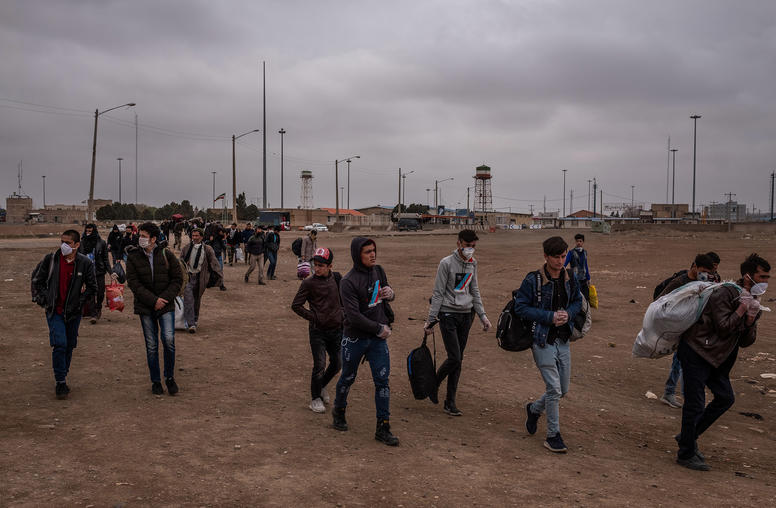
Coronavirus in Afghanistan: An Opportunity to Build Trust with the Taliban?
The COVID-19 crisis comes at a critical juncture for Afghanistan. The disputed 2019 presidential election has led to a stalemate between incumbent President Ghani and the chief executive of the last government, Abdullah Abdullah, both of whom claim the right to govern. At a time when the Afghan government should be focused on the best chance to bring peace in years, it’s distracted by a political crisis. Meanwhile, progress in the peace process has slowed since the U.S. and Taliban signed a deal in late February.

Belquis Ahmadi on Afghan Women and the Peace Process
Since 2001, Afghan women have assumed larger roles in society—becoming teachers, doctors and government officials. With intra-Afghan talks expected to begin this month, USIP’s Belquis Ahmadi says it’s important the Taliban “accept the reality that today’s Afghanistan is very different from the country they ruled” when it comes to women’s rights.
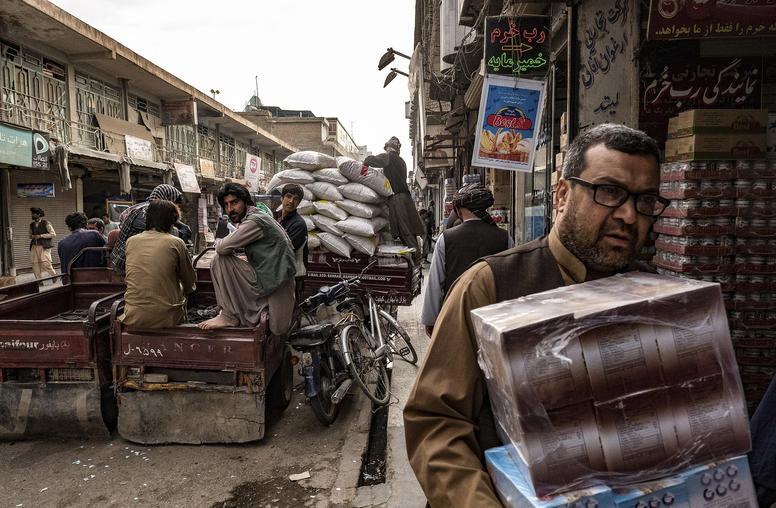
Will Rising U.S.-Iran Tensions Spark Afghan Proxy War?
Rising tensions between the United States and Iran—illustrated and exacerbated by the January 3 assassination of Iranian General Qassem Soleimani—are rippling out beyond the Middle East. Now, American officials are voicing growing concern about Iranian activities in Afghanistan. In recent weeks, Secretary of State Mike Pompeo said that Iran is supporting militant groups in the country and seeking to undermine the peace process between the U.S. and the Taliban. A top U.S. general for the region, meanwhile, warned that Iranian actions in Afghanistan pose a risk to the approximately 14,000 American troops deployed there.
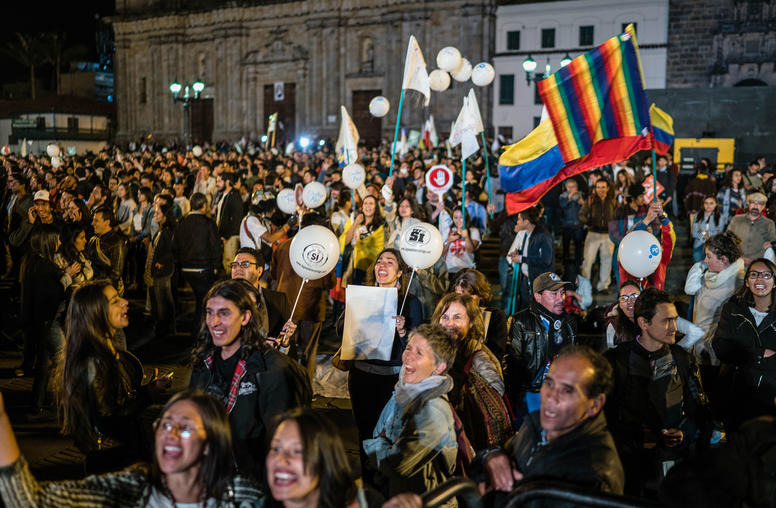
Colombia’s Imperfect Peace Could Provide a Roadmap for Afghanistan
The Afghan peace process was jumpstarted in September 2018 when President Trump appointed Ambassador Zalmay Khalilzad as special representative for Afghanistan reconciliation. Since then, Khalilzad has led 10 rounds of U.S.-Taliban talks, with negotiations focusing on two issues: ensuring the Taliban’s commitment to prevent transnational terrorists from using Afghanistan as a base for attacks, and a U.S. military withdrawal. As the search for peace in Afghanistan continues, what lessons can be learned from other peace processes that could apply to Afghanistan? Colombia’s imperfect peace agreement with the FARC is one especially relevant international reference point for Afghanistan—we explain why.
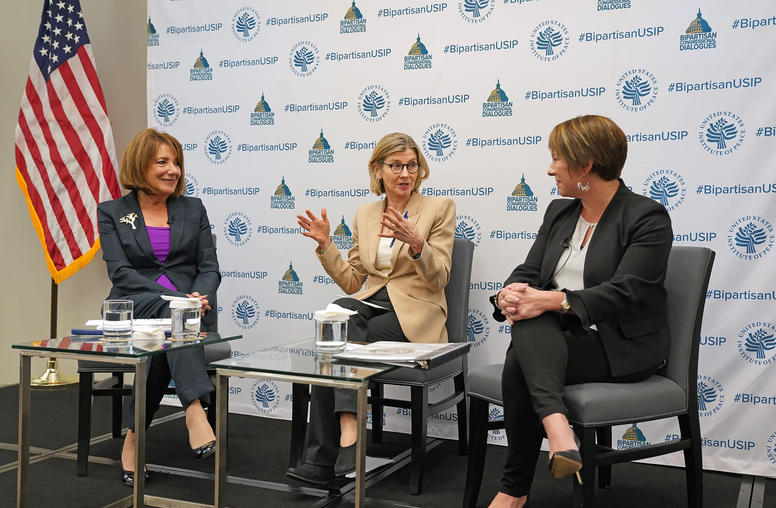
To Protect Afghan Women’s Rights, U.S. Must Remain Engaged
It’s been over a year since the U.S., led by Amb. Zalmay Khalilzad, opened talks with the Taliban aimed at ending the 18-year war. Over that year, Afghan women have demanded a seat at the negotiating table, worried that the hard-won gains made over the last two decades could be in jeopardy. Even with the peace process stalled, “it is vital that the U.S. remain engaged” to ensure that Afghan women’s rights are protected, said Rep. Martha Roby (R-AL) last week at the U.S. Institute of Peace’s latest Bipartisan Congressional Dialogue.
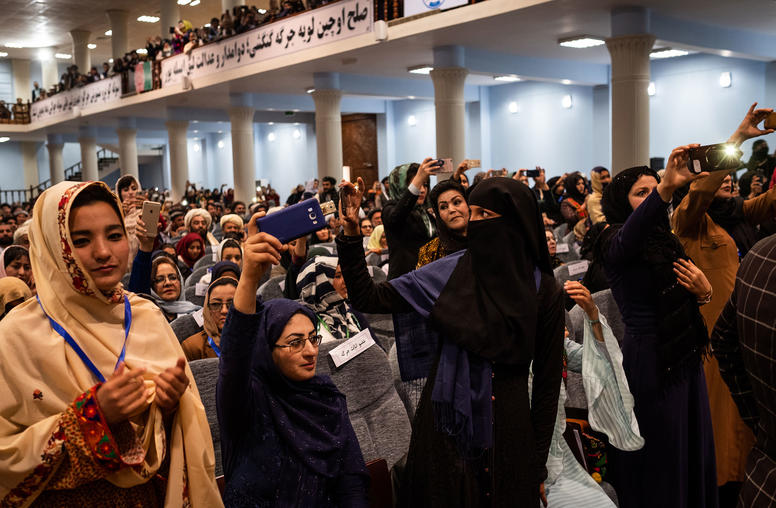
Afghans Want the Right Peace Deal, Not Just an End to Violence
Afghans are hopeful that a peace deal between the Taliban and the U.S. will bring them a step closer to the end of the country’s four decades of conflict. This protracted state of war has resulted in the loss of countless lives; mass displacement; and the destruction of infrastructure and the education and justice systems. Afghans will feel the consequences for generations to come.
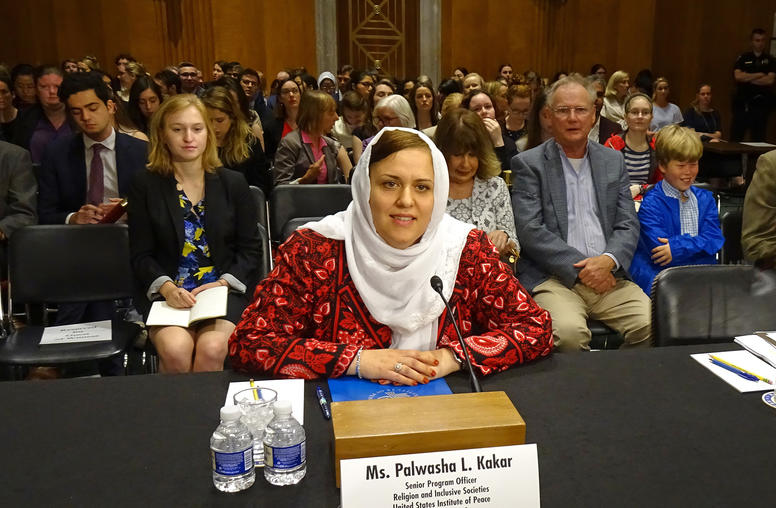
Women in Conflict: Advancing Women’s Role in Peace and Security
Palwasha Kakar, senior program officer for religion and inclusive societies, testified on June 13 at the Senate Foreign Relations Subcommittee on Western Hemisphere, Transnational Crime, Civilian Security, Democracy, Human Rights, and Global Women’s Issues' hearing on "Women in Conflict: Advancing Women's Role in Peace and Security.” Her expert testimony as prepared is presented below.

Belquis Ahmadi on the Afghan Peace Process
Reflecting on recent conversations in Doha and Kabul, USIP’s Belquis Ahmadi says that Afghans told her they want peace, but are not willing to sacrifice the hard-won gains of the last 18 years to get there. As U.S.-Taliban talks move forward, the extent of the Taliban’s evolution on issues like women’s rights remains in question. “I’ll believe it when I see it,” says Ahmadi.

What Can Make Displaced People More Vulnerable to Extremism?
As the international community works to prevent new generations of radicalization in war-torn regions, debate focuses often on the problem of people uprooted from their homes—a population that has reached a record high of 68.5 million people. Public discussion in Europe, the United States and elsewhere includes the notion that displaced peoples are at high risk of being radicalized by extremist groups such as ISIS. Scholars and peacebuilding practitioners have rightly warned against such generalizations, underscoring the need to learn which situations may make uprooted people vulnerable to radicalization. A new USIP study from Afghanistan notes the importance of specific conditions faced by displaced people—and it offers indications suggesting the importance for policy of supporting early interventions to stabilize the living conditions of displaced people after they return home.
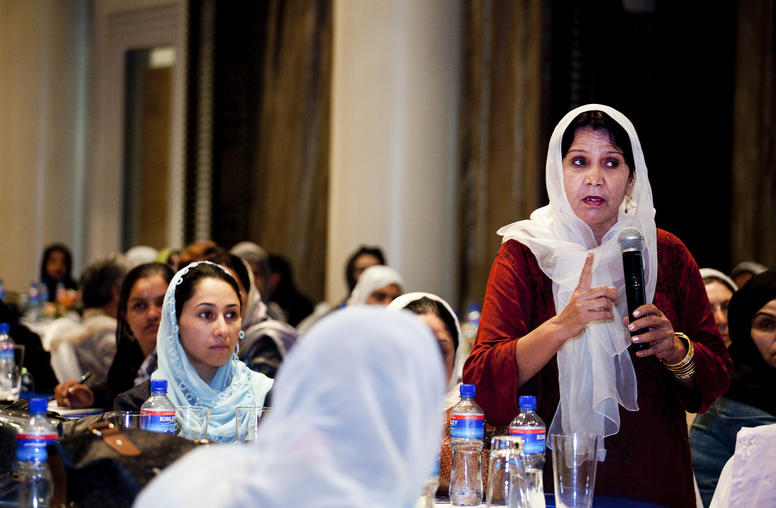
Afghanistan Talks: No Women, No Peace
As talks between the U.S. and the Taliban raise hopes for peace in Afghanistan, the country’s women fear another—and related—possibility: That their hard-won rights to participate in the nation’s political and economic life could again be washed away by the Taliban’s rigid views on gender.